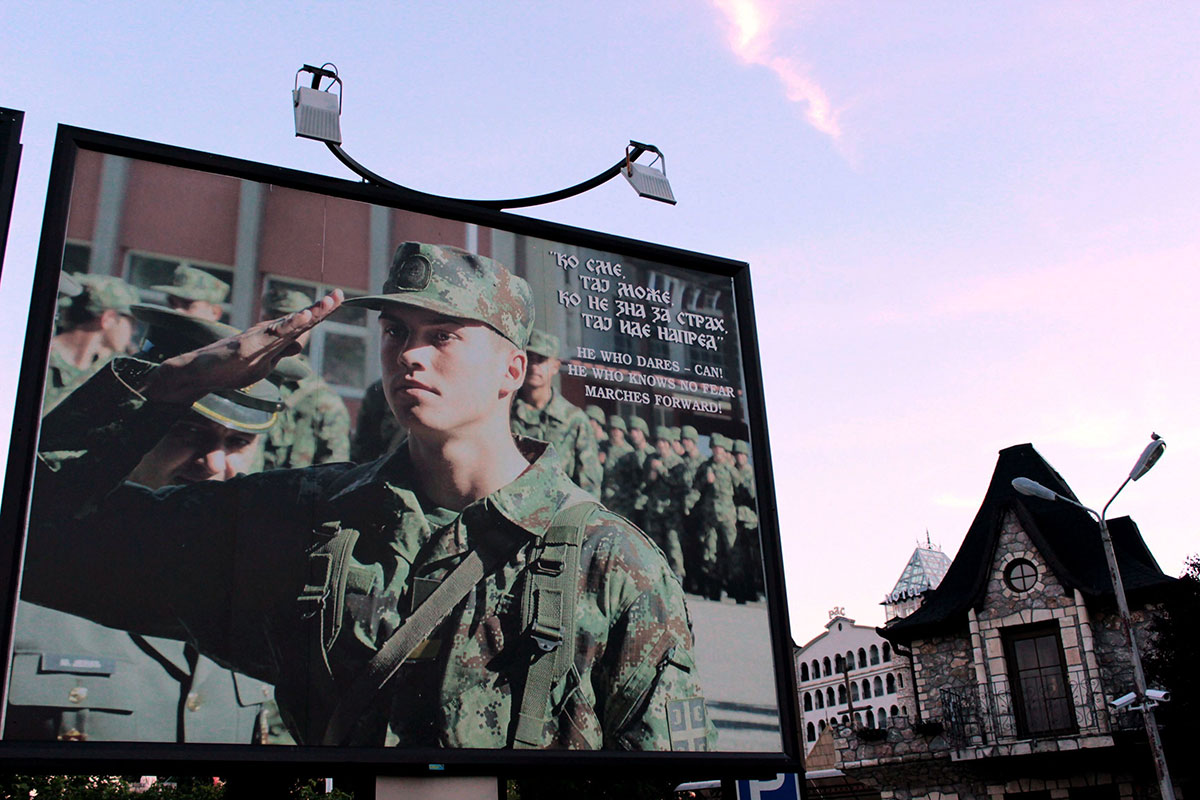If Serbian parliament adopts the proposed amendments to the law on the army, it will become legitimate for the military police to protect people based on the decision of the minister of defense, and arrest citizens who are in the way of that mission. Namely, the proposals for the law on amendments to the law on defense and the law on the army of Serbia have entered parliamentary procedure. The proposed changes will give greater authority to the military police in the civil domain and limit the public’s right to be informed about various aspects of the utilization of the army. An opportunity to change some bad legal solutions was also missed.
Public debate on amendments to these laws was conducted in November so discreetly that it was noticed only by diligent monitors of activities related to defense. Both laws were last amended in February 2015. As the main reason for the new changes, the ministry of defense stated “the need to align existing solutions with practical experience.” A more careful reading of the proposed changes leads to the conclusion that it is actually a legalization of practices that were criticized by civil society and independent state authorities as unlawful.
Thus, a provision according to which the military police could, “following the decision of the minister of defense, carry out tasks related to securing certain persons and counterterrorism protection outside the jurisdiction of the ministry of defense and the army of Serbia”, was added to the law on the army. It is completely unclear why, in addition to the civilian police, any “civilian person” would need to be protected by the military police. It also raises the question of why the minister of defense would make decisions in the domain of civilian security forces, especially when we already have a national security council, authorized to coordinate security affairs, of which the minister of defense is a member. The criteria based on which the minister would decide which persons outside the defense system should be protected by the military police are also unclear.
Especially worrying is the fact that, by these changes, the military police would get authority over the rights of citizens. It is currently allowed to detain an unauthorized civilian found on the grounds of a military facility, but is obliged to immediately call the police and hand over the perpetrator for further treatment. By removing this obligation from the law, the military police would inform the relevant prosecutor about such an event and continue to act on his order. This would expand the powers of the military police against the citizens unjustifiably. Things will become even more problematic if, as foreseen by these changes, the military police is allowed to protect persons and implement counterterrorism activities outside the jurisdiction of the ministry of defense and military facilities.
It is also very worrying that the new law on defense will a priori define the kind of data that counts as secret information of importance to national defense, including, for example, data on moving objects intended for defense, or data “about the undertaken measures, actions, and procedures… whose disclosure would cause damage to the interests of defense forces.“ It is indisputable that the defense system has data that could have detrimental consequences for the security of Serbia, but it is necessary to decide on the confidentiality of the data on a case-by-case basis. Not all data are equally sensitive and the power to stamp the security label at will significantly limits the public’s right to information. This could also be detrimental to the defense system itself, as it may prevent detection of corrupt actions and unscrupulous planning.
In other words, this would mean that data that would be detrimental to the interests of individuals who, by their actions, damage the defense system and the citizens of Serbia could also be considered secret. The way the ministry of defense defends the concept of secrecy from questioning by “different associations” shows that trust and communication between the ministry of defense and the army, on one side, and organizations dedicated to strengthening the integrity of security institutions, on the other, is needed more than ever. We have a mutual goal: the greater security of the citizens of Serbia.
In this respect, it is devastating that the ministry has rejected the proposal of the Belgrade center for security policy to use the amendments to remove provisions regulating scientific and research work of importance for defense. Consistent interpretation of these provisions would mean that every research team should submit its results to the ministry of defense. Also, anyone planning a project with financial support from international sources (for example, EU funds), or in cooperation with foreign institutes, would have to seek approval from this ministry.
The need to protect classified information is understandable, but it is already regulated by the law on data secrecy. The criminal code also criminalizes spying and revealing of state secrets. Finally, protection of critical infrastructure needs to be regulated by a special law, and not by expecting someone who engages in espionage to report themselves to the ministry of defense. When all these considerations are taken into account, the provisions on scientific and research work of importance for defense seem outdated and unreasonable in a country which strives for democracy.
The author is a researcher at the Belgrade center for security policy (BCSP).
Translated by Marijana Simic
Peščanik.net, 11.01.2018.



